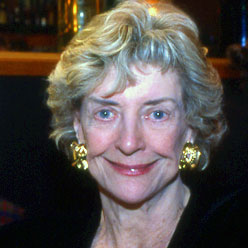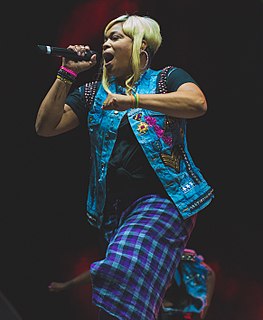A Quote by John Barnes
In the 1970s people were afraid to call me black because they thought it was an insult. They would say 'coloured.' Now it has gone full circle. It's not an issue. The intention is the most important thing.
Related Quotes
"What would people say about you when you're gone?" That to me was a very important question. I thought about that for a couple of years and said, "What people say about you when you're gone doesn't matter. You're gone." What really matters is, "What do you say about yourself in the here and now? Are you proud of what you're doing?" If you had a short lease and it ended today, or it ends tomorrow, what would you wish you would have done? You better do it.
I would say I'm black because my parents said I'm black. I'm black because my mother's black. I'm black because I grew up in a family of all black people. I knew I was black because I grew up in an all-white neighborhood. And my parents, as part of their protective mechanisms that they were going to give to us, made it very clear what we were.
When my grandmother died, I realized that even if I had millions of dollars, I couldn't find her anywhere on earth. My next thought was that I would die. I looked at my life and thought, "I'm afraid to die." I concluded that whether I was afraid or not, I would die. It was one of the most important crossroads in my life, once I realized that no matter what, I would do this thing, the next step was to think, "If I am going to do the most difficult and frightening thing - dying - is it possible that I could do some difficult and impossible things that are good?"
I think, when I started to become successful in the movie business, my mother was very, very worried. She thought no one would want to marry me and she thought that was the most important thing. And she thought that it would affect my personal relations. And she said how worried she was that people would take advantage of me or I would meet the wrong people. When I was made head of the studio, one of her first things was, "Well, now no one will marry you. I hope you'll be happy, whatever."
The moral authority in the Western world is gone. And it is gone forever. It is gone, not because of the criminal record--everybody's record is criminal. It is gone because you cannot do one thing and pretend you're doing another! None of us, who are sitting around in some of the true limbo out-of-space, which we call "now," waiting to be saved, civilized, or discovered, have the moral authority to say anything.
The strange thing about my life is that I came to America at about the time when racial attitudes were changing. This was a big help to me. Also, the people who were most cruel to me when I first came to America were black Americans. They made absolute fun of the way I talked, the way I dressed. I couldn't dance. The people who were most kind and loving to me were white people. So what can one make of that? Perhaps it was a coincidence that all the people who found me strange were black and all the people who didn't were white.
It is really very important while you are young to live in an environment in which there is no fear. Most of us, as we grow older, become frightened; we are afraid of living, afraid of losing a job, afraid of tradition, afraid of what the neighbours, or what the wife or husband would say, afraid of death.































